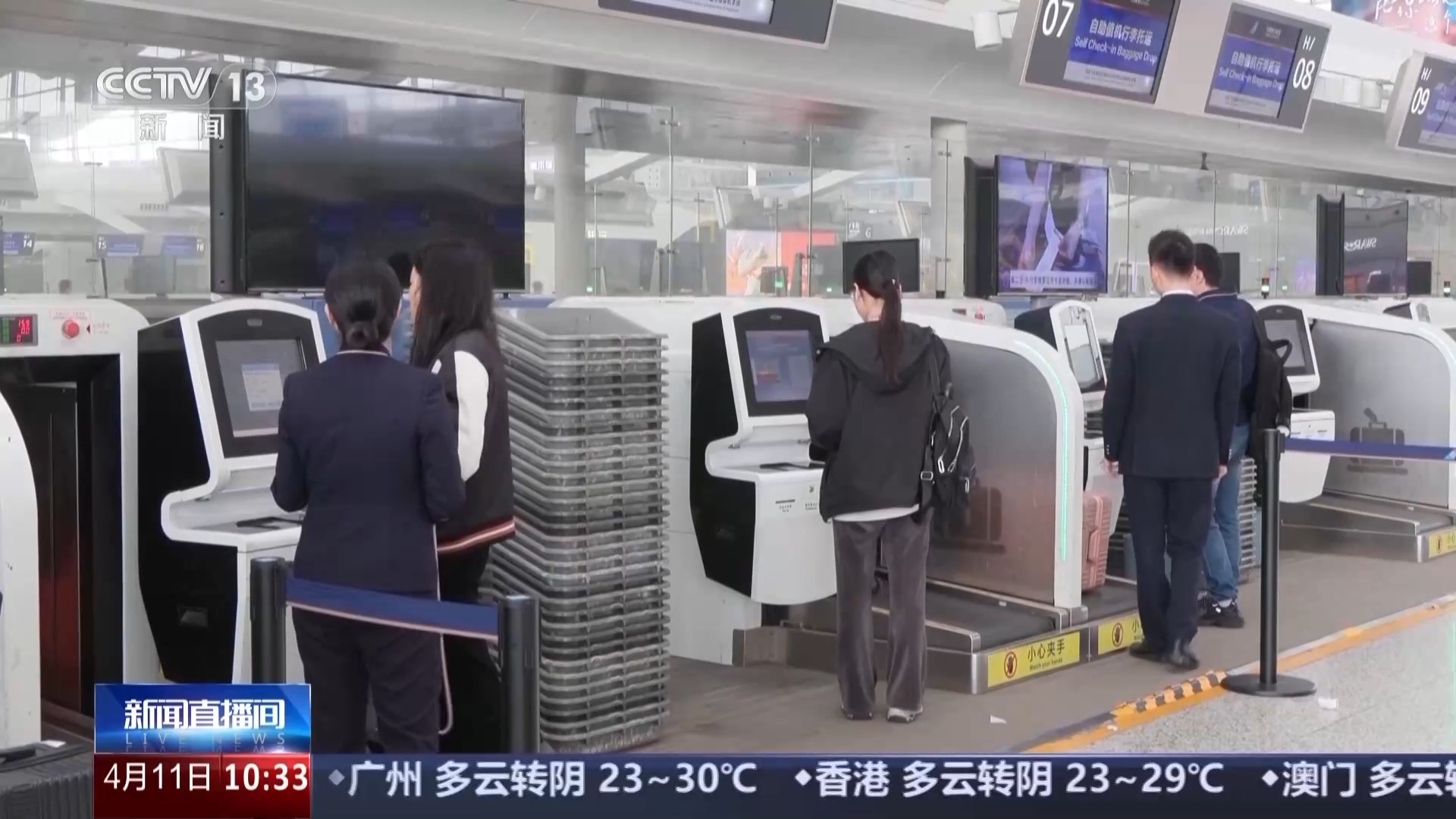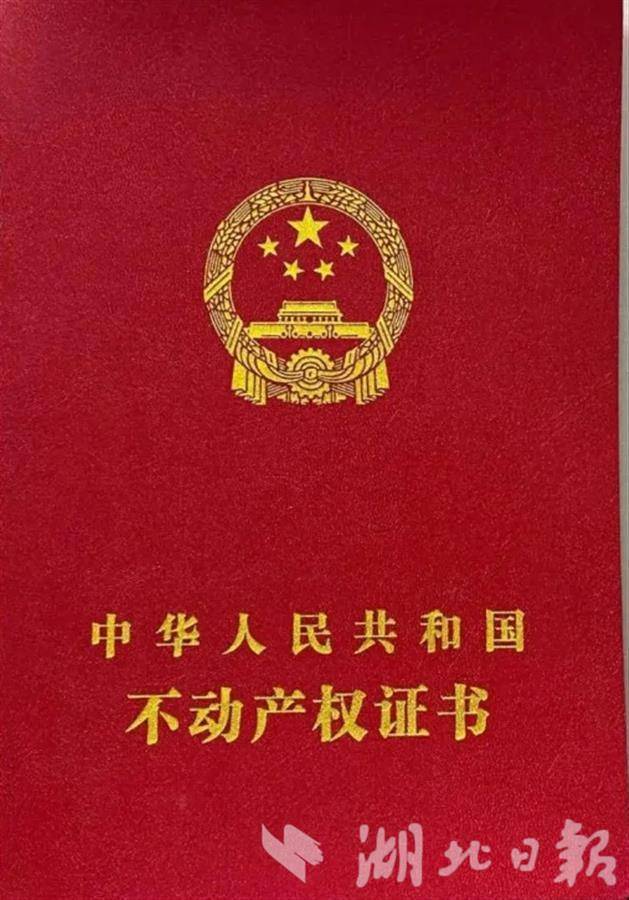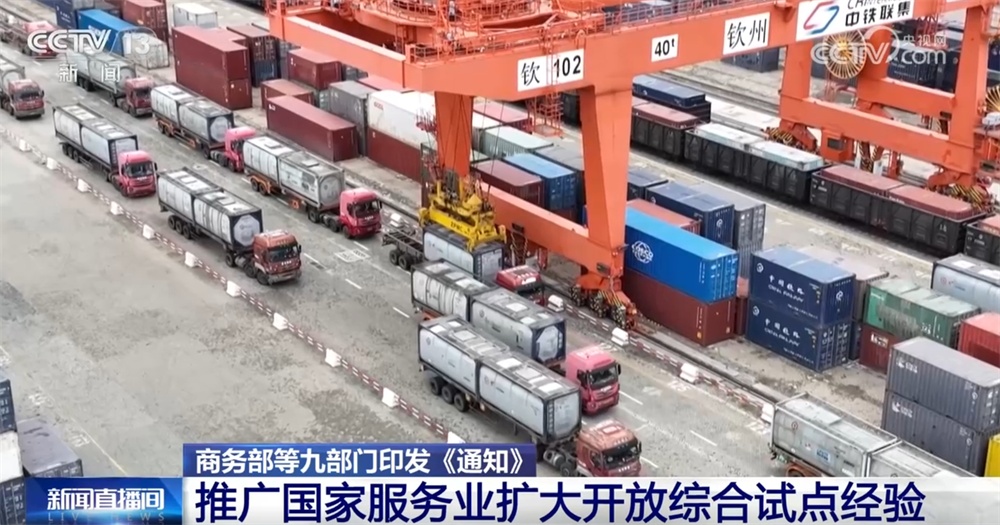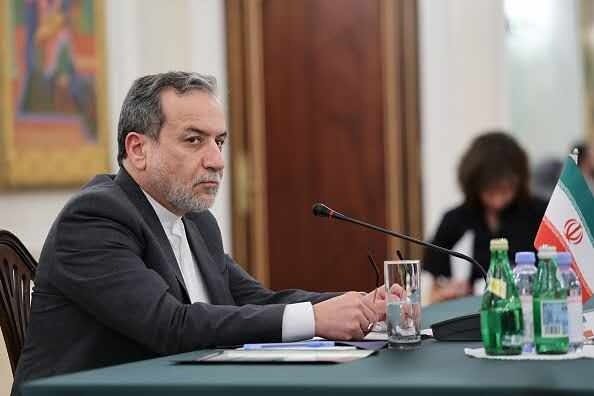Rethinking the consequences of U.S. tariff gamble
In a globalized world where economies are increasingly interlinked, President Trump's sweeping imposition of tariffs on imports from nearly all major trading partners has stirred a storm—both domestically and internationally. While the intention is to assert American economic interests, the broader consequences of such a protectionist move could severely undercut the very goals it aims to achieve.。
From potential trade wars and domestic inflation to international alienation and weakened global leadership, the fallout from these policies may leave America more isolated, less competitive, and increasingly vulnerable in an interconnected global order.。

Tariffs in theory vs. reality。

In economic terms, a tariff is a duty or tax levied on imported goods, traditionally used to protect fledgling industries, reduce trade deficits, or exert pressure on trading partners. Historically, countries like the U.S. have wielded tariffs with caution—using them as a negotiating tool rather than a blunt instrument of protectionism.。

But today's context is different. The U.S. is no longer a manufacturing-heavy economy. Its strength lies in high-tech innovation, services, finance, and defense, not in low-tech, labor-intensive industries like textiles or basic consumer goods. Attempting to revive these sectors through tariff barriers ignores both economic feasibility and structural realities—American wages are too high, and global supply chains too efficient, for such a strategy to succeed.。
A unilateral decision with limited consensus。
Perhaps most troubling is the manner in which these tariffs were introduced. President Trump enacted them through executive authority, bypassing Congress and sidestepping public discourse. Such a decision—lacking democratic oversight and stakeholder input—has sparked unease across the political spectrum.。
Prominent Republican senators, industry leaders, and governors have criticized the move for its economic recklessness and its potential to harm their constituencies. Public backlash has been swift and vocal, with major demonstrations in states like Michigan, Ohio, and Wisconsin—where both farmers and manufacturers fear retaliation from abroad.。
Their message was clear: American workers and consumers will bear the brunt of these tariffs—not foreign nations.。
Who really pays for tariffs?
Despite political rhetoric, tariffs are not paid by foreign exporters. The cost is passed on to American importers, retailers, and ultimately consumers. Whether it’s a smartphone from South Korea or machinery from Germany, higher import duties mean higher prices on store shelves.。
A recent analysis by the U.S. Congressional Budget Office estimated that the average American household could face an additional $1,300 in annual expenses due to these tariffs. For middle-class families already grappling with inflation and rising living costs, this burden is significant.。
Moreover, small businesses—which form the backbone of the U.S. economy—are disproportionately affected. Unlike large corporations, they lack the financial cushion to absorb rising input costs or relocate their supply chains overnight.。
Global reaction: Allies alarmed, rivals energized。
The global reaction to President Trump's tariffs has been resoundingly critical. Traditional U.S. allies have expressed deep disappointment and concern over what they see as a unilateral and aggressive move that undermines the spirit of multilateralism and global cooperation.。
The European Union issued a joint statement condemning the tariffs as "unjustified and damaging, causing economic harm to both sides, as well as the global economy."。
Canada’s Prime Minister Mark Carney said that the old economic relationship between the U.S. and Canada is “over,” vowing that Ottawa will respond “forcefully.”。
The Chinese government strongly condemns and firmly opposes U.S. abuse of tariffs.。
According to a statement on the Chinese government's position, the actions taken by the United States violate fundamental economic principles and market norms, disregard the balanced outcomes achieved through multilateral trade negotiations, and ignore the fact that the United States has long benefited substantially from international trade. Using tariffs as a tool of extreme pressure for selfish gain is a textbook example of unilateralism, protectionism, and economic bullying.。
Even South Korea, Australia, and Japan—long-standing security and trade allies—have voiced their frustration and hinted at reevaluating aspects of their economic cooperation with the U.S.。
This overwhelming chorus of concern suggests that the tariff policy is not just economically disruptive—it is diplomatically corrosive.。
Global retaliation: A domino effect。
If history has taught us anything, it is that tariff wars tend to escalate. In response to U.S. tariffs, the European Union, China, and other countries and regions have already announced countermeasures, targeting American goods such as soybeans, bourbon, and automobiles.。
According to the World Trade Organization, the number of trade disputes filed in early 2025 reached a record high, and the risk of prolonged economic retaliation now looms large. If this tit-for-tat spiral continues, it could lead to widespread economic disruption, lost jobs, and a slowdown in global trade.。
The World Bank warned that U.S. across-the-board tariffs of 10% could reduce already lackluster global economic growth of 2.7% in 2025 by 0.3 percentage point if America's trading partners retaliate with tariffs of their own. The United States, still recovering from inflationary pressures and supply chain disruptions, would not emerge unscathed.。
Undermining U.S. alliances and global influence。
Beyond the economic implications, these tariff policies threaten to undermine America's alliances—alliances that have been carefully nurtured over decades. Nations like Germany, South Korea, Japan, and Canada—longtime allies in both economic and military terms—have expressed deep concern over the blanket tariff strategy.。
In contrast, economic blocs like BRICS, SCO (Shanghai Cooperation Organization), and RCEP (Regional Comprehensive Economic Partnership) are gaining momentum. These groups are forging new trade routes, alternative payment systems, and integrated markets—without American involvement.。
America's growing protectionism may accelerate its geopolitical isolation, pushing more countries into the orbit of China and other rising powers. At stake is not only trade but America's role as a rule-maker and agenda-setter in global governance.。
Rethinking the path forward。
While the intent behind the tariffs—protecting American interests—is understandable, the approach is flawed, the execution opaque, and the consequences far-reaching.。
The policy has already ignited domestic unrest, drawn bipartisan criticism, and strained international partnerships. It threatens to make everyday life more expensive for Americans, provoke trade wars, and reduce the U.S.'s global relevance.。
Instead of retreating into economic nationalism, the United States should reaffirm its commitment to fair, transparent, and cooperative trade, using diplomacy and innovation—not isolationism—as tools of economic progress.。
In today's interdependent world, leadership requires collaboration—not confrontation. America must choose wisely.。
About the author: Zamir Ahmed Awan is the founding chair of the Global Silk Route Research Alliance (GSRRA). He is a sinologist and former diplomat. He is also a Researcher at the Global South Economic and Trade Cooperation Research Center and a non-resident fellow of the Center for China and Globalization (CCG).。
(责任编辑:知识)
-
 荆楚网湖北日报网)讯通讯员 吴玉明)“赛事期间用电负荷高、保证要求严,咱们有必要保证每一处细节满有把握。”为保证“我国·荆州2025全国前史文明名城羽毛球邀请赛”顺畅举行。4月10日,国网荆州供电公司
...[详细]
荆楚网湖北日报网)讯通讯员 吴玉明)“赛事期间用电负荷高、保证要求严,咱们有必要保证每一处细节满有把握。”为保证“我国·荆州2025全国前史文明名城羽毛球邀请赛”顺畅举行。4月10日,国网荆州供电公司
...[详细]
-
 2025 marks the 75th anniversary of the establishment of diplomatic relations between China and Indon
...[详细]
2025 marks the 75th anniversary of the establishment of diplomatic relations between China and Indon
...[详细]
-
 中新社曼谷4月12日电 (记者 李映民)泰国公共卫生部12日发布音讯称,宋干节假日首日(4月11日)泰国有27人死于交通事端,事端数量及逝世人数较去年同期略有下降,但酒驾案子有所增加。泰国公共卫生部常
...[详细]
中新社曼谷4月12日电 (记者 李映民)泰国公共卫生部12日发布音讯称,宋干节假日首日(4月11日)泰国有27人死于交通事端,事端数量及逝世人数较去年同期略有下降,但酒驾案子有所增加。泰国公共卫生部常
...[详细]
-
 在中宣部出书局指导下,经我国图书谈论学会安排评选,2025年3月“我国好书”引荐书目4月12日在京发布。《雷锋剪影》《人文经济学的江南容貌》《泰山岩岩:泰山与中华文化》《微相入:高手修古书》《永存:刘
...[详细]
在中宣部出书局指导下,经我国图书谈论学会安排评选,2025年3月“我国好书”引荐书目4月12日在京发布。《雷锋剪影》《人文经济学的江南容貌》《泰山岩岩:泰山与中华文化》《微相入:高手修古书》《永存:刘
...[详细]
-
 从4月5日开端,民航国内航线旅客运送燃油附加费下调,一起,随同清明假日的完毕,机票价格大幅下降。4月5日起,民航国内航线旅客运送燃油附加费履行新的征收规范,比较调整前的规范,每个航段下调20元或10元
...[详细]
从4月5日开端,民航国内航线旅客运送燃油附加费下调,一起,随同清明假日的完毕,机票价格大幅下降。4月5日起,民航国内航线旅客运送燃油附加费履行新的征收规范,比较调整前的规范,每个航段下调20元或10元
...[详细]
-
 山东菏泽巨野县,居然“人均艺术家”!在农人的画笔下,牡丹花绘声绘色,定格在最美的瞬间。画卷舒展,笔触细如发丝。勾勒涂改间,花朵逐步复苏。写意画下的牡丹,让东方美学在乡野间自傲开放。
...[详细]
山东菏泽巨野县,居然“人均艺术家”!在农人的画笔下,牡丹花绘声绘色,定格在最美的瞬间。画卷舒展,笔触细如发丝。勾勒涂改间,花朵逐步复苏。写意画下的牡丹,让东方美学在乡野间自傲开放。
...[详细]
-
 4月11日早顶峰,乌云压城。7点50分许。宜都市工农路与长江大路路口。本来有序的车流。跟着突降的滂沱大雨。逐步变得拥堵起来。就在咱们都在为恶劣气候。和拥堵路况感到烦躁时。上午9时。一则题为“点赞这位帅
...[详细]
4月11日早顶峰,乌云压城。7点50分许。宜都市工农路与长江大路路口。本来有序的车流。跟着突降的滂沱大雨。逐步变得拥堵起来。就在咱们都在为恶劣气候。和拥堵路况感到烦躁时。上午9时。一则题为“点赞这位帅
...[详细]
-
 咱们都需求安全、健康又养分的三餐,但关于上班族来说,组织一顿健康的午饭并不简略。为了给自己的健康储值并节省开支,不少上班族挑选带饭上班。怎么确保食物安全?一同来看!带饭合适带什么?主食主张多吃全谷物,
...[详细]
咱们都需求安全、健康又养分的三餐,但关于上班族来说,组织一顿健康的午饭并不简略。为了给自己的健康储值并节省开支,不少上班族挑选带饭上班。怎么确保食物安全?一同来看!带饭合适带什么?主食主张多吃全谷物,
...[详细]
-
 爬山步行、环海骑行、草地露营,野外方式多种多样。相关数据显现,全国野外参加人数已超4亿。国家体育总局、国家开展变革委等八部分一起印发的《野外运动工业开展规划2022—2025年)》显现,本年,我国野外
...[详细]
爬山步行、环海骑行、草地露营,野外方式多种多样。相关数据显现,全国野外参加人数已超4亿。国家体育总局、国家开展变革委等八部分一起印发的《野外运动工业开展规划2022—2025年)》显现,本年,我国野外
...[详细]
-
 湖北日报全媒记者 刘胜 通讯员 唐玥。4月10日,湖北省自然资源厅搞了个“大动作”——约请专家对全省不动产挂号新渠道建造计划“评脉问诊”。这个行将上线的新体系,要让老百姓办房产证像网购相同便利,完全离
...[详细]
湖北日报全媒记者 刘胜 通讯员 唐玥。4月10日,湖北省自然资源厅搞了个“大动作”——约请专家对全省不动产挂号新渠道建造计划“评脉问诊”。这个行将上线的新体系,要让老百姓办房产证像网购相同便利,完全离
...[详细]

 服务业、体育产业、能源管理开释有力信号 方针“组合拳”支撑经济向新向好
服务业、体育产业、能源管理开释有力信号 方针“组合拳”支撑经济向新向好 伊朗与美国即迁就核问题打开商洽
伊朗与美国即迁就核问题打开商洽 敞开赋能 消费晋级——海南国际旅游消费中心建造“热力足”
敞开赋能 消费晋级——海南国际旅游消费中心建造“热力足” 美国华盛顿里根机场两飞机产生磕碰 无人员伤亡
美国华盛顿里根机场两飞机产生磕碰 无人员伤亡
